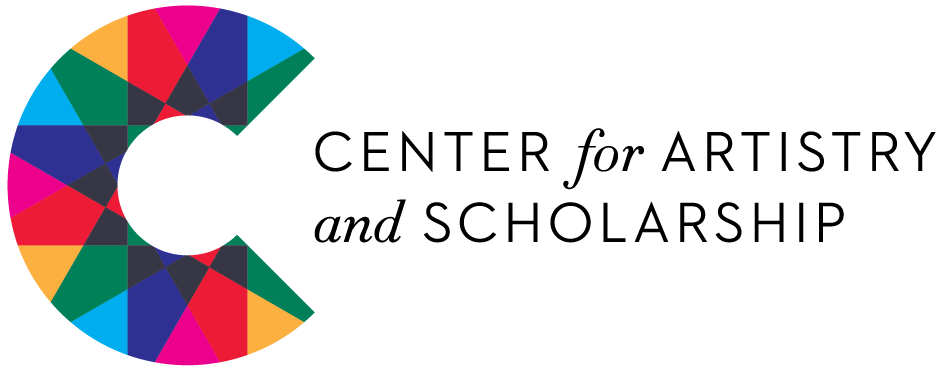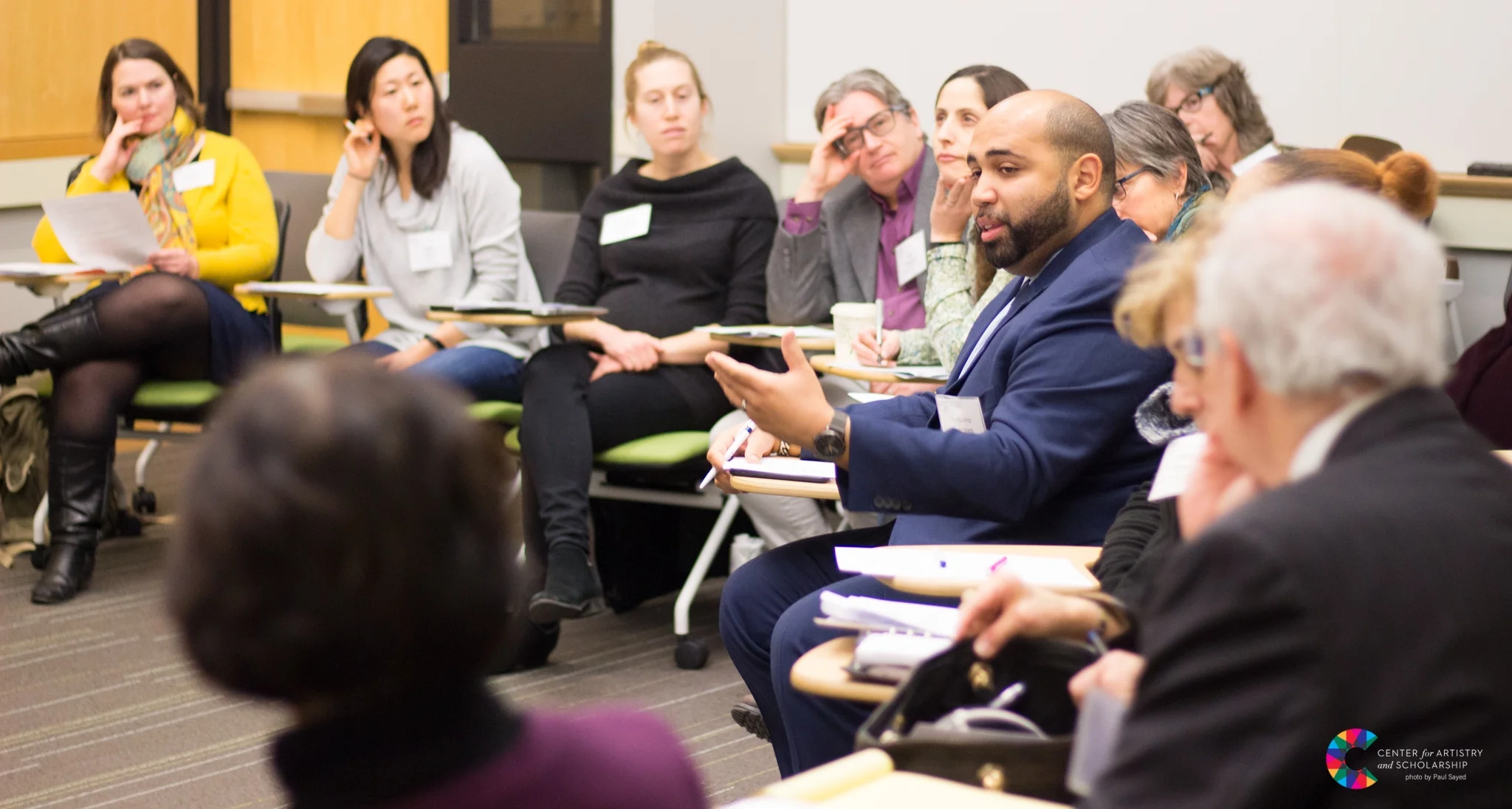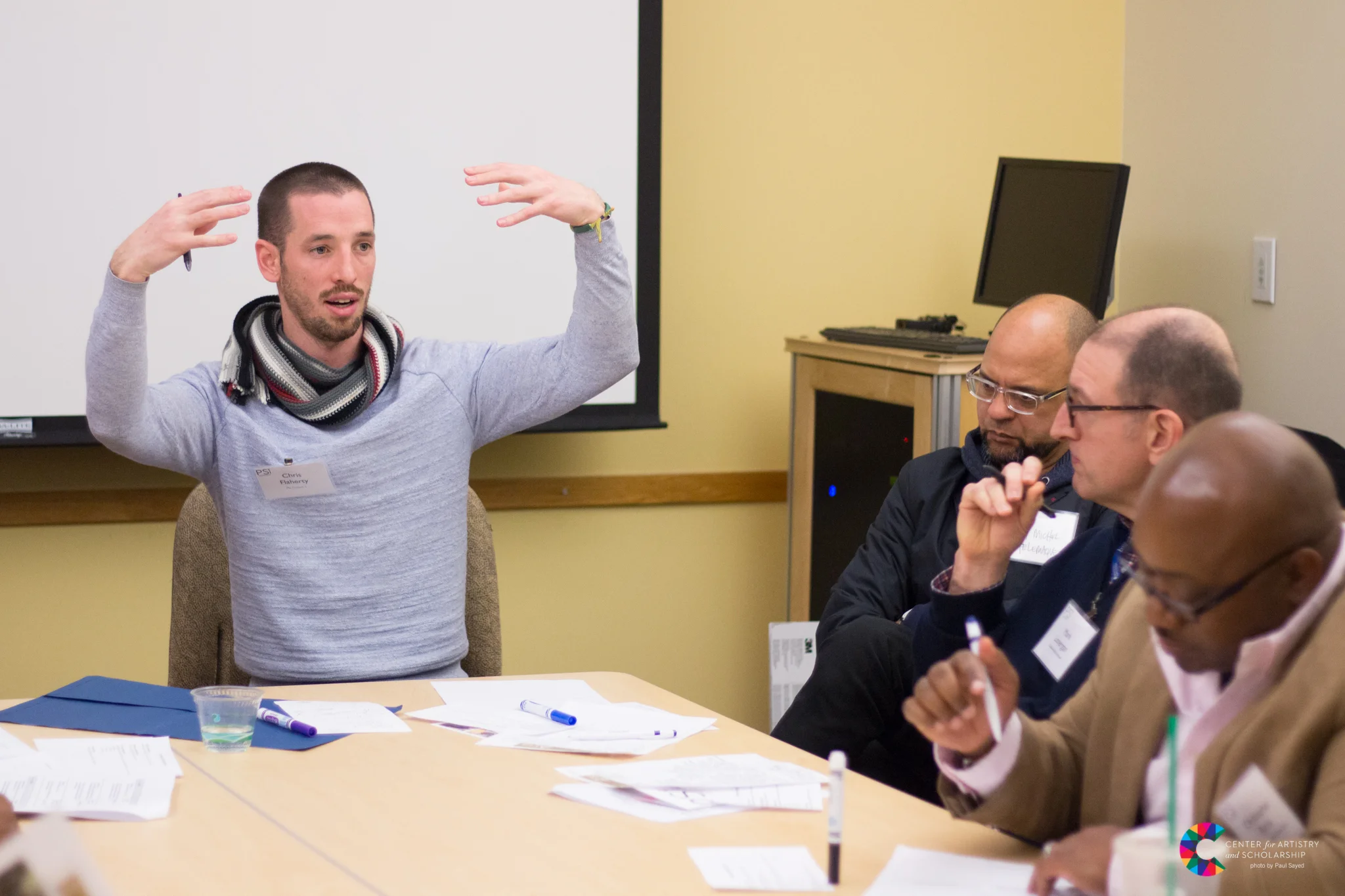The Gift of Time: PSi’s Mid-Year Capstone Consultancy Day
Time is a precious commodity in schools; there’s never enough of it. So, when your mentors and peers—and even complete strangers—give you the gift of their time and uninterrupted attention to focus with you on a dilemma you’re grappling with, it can be a transformative experience.
On January 19, 2018, at Gutman Library at Harvard Graduate School of Education, over 100 educators and leaders gave their time to support the work of 18 emerging leaders participating in the Perrone-Sizer Institute (PSi) for Creative Leadership’s Mid-Year Capstone Consultancy Day. These guests included over two dozen principals and district administrators, as well as our partners at the University of Massachusetts Boston, including the Dean of the College of Education and Human Development, Dr. Joseph Berger; the Chair of the Department of Leadership in Education, Dr. Tara Parker; and Graduate Program Administrator Amy Collinsworth.
The purpose of the Consultancy Day was to give members of PSi’s 2017-2018 cohort the opportunity to present and—with the help of those gathered—explore a question arising out of their Capstone Leadership Projects—collaborations each of them is developing this year between community-based partners and her or his current workplace to address a common goal. Presenters were joined by principals, mentors, peers, and students they had invited to engage in their presentations. In addition. they were joined by other attendees invited by PSi Co-Directors Linda Nathan and Carmen Torres. Typically, these guests were attracted to a particular session by the title or key question shared on the event schedule.
During hour-long concurrent sessions over the course of the day, guests engaged in facilitated discussions, offering their insights about each presenter’s work. And presenters had the opportunity to think more expansively and deeply about the issue they had identified. Presenters chose one of three discussion protocols: Consultancy, Council, or 4 As, or designed a process of their own. The goal was not necessarily to come up with solutions, but rather to delve collectively into an analysis of the issues. Sometimes the outcome was, “I’m not asking the right question.”
Examples of PSi participants’ questions include:
“How do we schedule and accommodate the demands of social and emotional learning and build a schedule to allow for unstructured play?”
“How do we provide resources to teachers and construct a process so that teachers are able to take on the work of race and equity and social and emotional learning, and it becomes their own iterative process?”
“What biases exist when we talk about ‘social responsibility’ and how it is taught?”
After an intense day presenting and engaging in their peers’ questions, PSi participants reflected on their experience:
“A highlight for me was seeing many people who have influenced my thinking and development as a teacher in the same room and having people I did not know but who were also interested in my dilemma. Afterwards, I was greeted by a handful of people who wanted to connect with me or offered to find a time to talk further with them if I wanted. The networking was effortless. The conversation was real. Just so lovely and an experience I'll never forget.”
“I loved hearing all of the presentations/conversations! All the guests had really interesting questions that made me think about each project in a new way. It was great to have a diverse group of perspectives to contribute to our work.”
“I really appreciated the consultancy model. It gave me so much support in my project: affirmation and challenge in my thinking, concrete resources and ideas.”
“I was so overjoyed that my team was in the room, and honestly everyone else that was there. The amount of support and feedback I received was incredible.”
Many of the guests shared their impressions with us, too:
“This was a spectacular event for educators to showcase their action studies and gain feedback. I think the model works and that in each session I attended, feedback was given that was applicable to help enhance the project.”
“I loved the process and intellectual sharing that took place in addition to the opportunity to support a former student.”
“I appreciated the passion I saw in each of the presenters!”
“I really enjoyed the opportunity to point out assumptions and also points that we admired from the cohort participants. The responses/dialogue back and forth were great.”
And if there were a critique of the day, from students and guests, it was typically, “I wish we had more time.”
We are already looking forward to next year, and to the challenge of giving more time to questions that matter and conversations that lead to better outcomes for children and families. Applications are now being accepted on a rolling basis for PSi’s 2018-2019 cohort, and we invite you to share this opportunity with emerging leaders you know. Learn more here or contact PSi Program Manager Lisa Sankowski at lsankowski@artistryandscholarship.org for more information.



